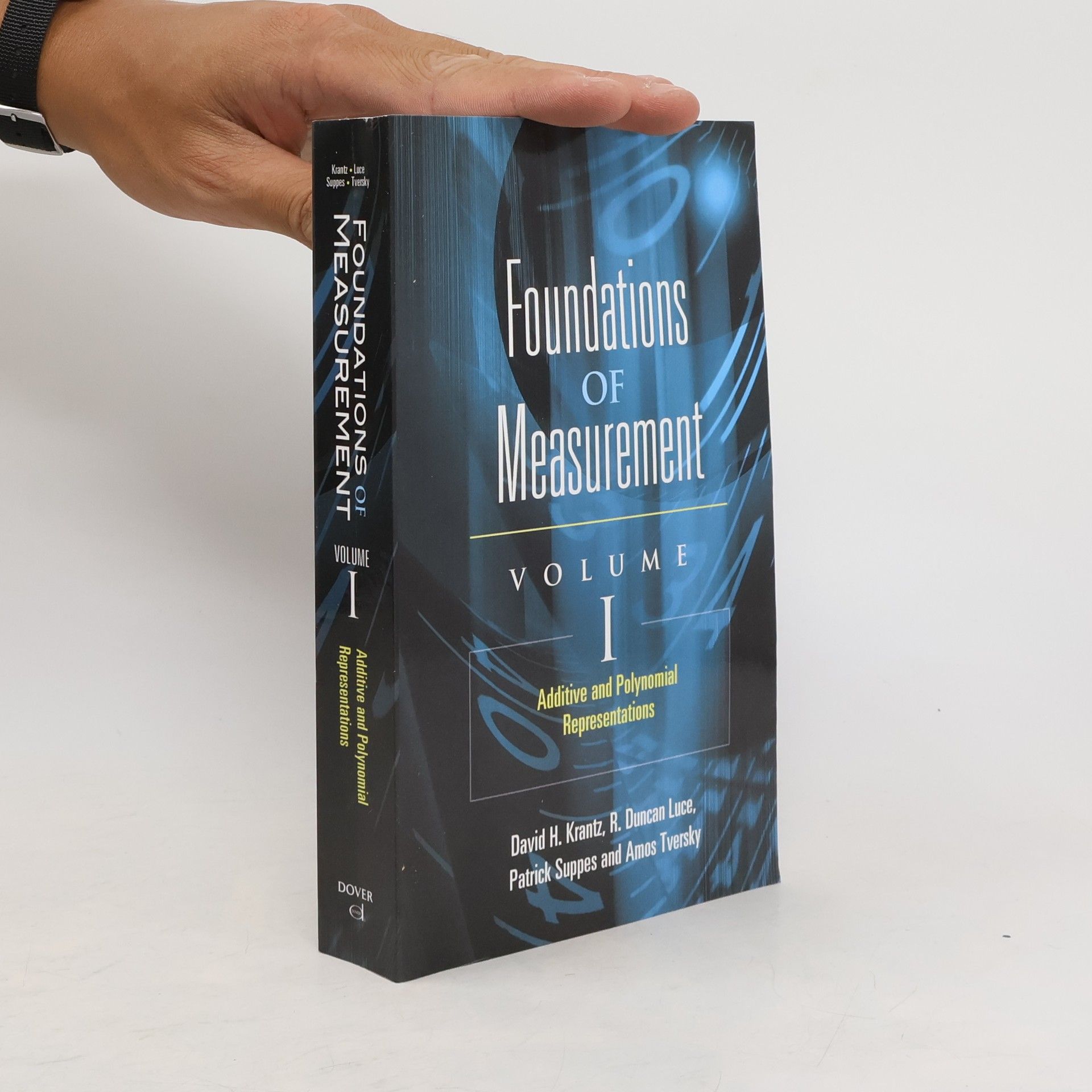A compilation of different approaches--normative, descriptive,and prescriptive--develops this integrated analysis of decision-making that emphasizes the contributions of various disciplinary interests.
Amos Tversky Books
Amos Tversky was a cognitive and mathematical psychologist whose work profoundly shaped our understanding of human decision-making. He was instrumental in uncovering systematic cognitive biases and revealing how individuals perceive and handle risk. His early research focused on the foundations of measurement, leading to a significant multi-volume treatise. In collaboration with Daniel Kahneman, Tversky explored the psychology of prediction and probability judgment, developing prospect theory, a seminal contribution to behavioral economics that explains irrational economic choices.




Choices, Values, and Frames
- 860 pages
- 31 hours of reading
Choices, Values, and Frames presents an empirical and theoretical challenge to classical utility theory, offering prospect theory as an alternative framework. Extensions and applications to diverse economic phenomena and to studies of consumer behavior are discussed. The book also elaborates on framing effects and other demonstrations that preferences are constructed in context, and it develops new approaches to the standard view of choice-based utility. As with the classic 1982 volume, Judgment Under Uncertainty, this volume is comprised of papers published in diverse academic journals. The editors have written several new chapters and a preface to provide a context for the work.
Foundations of Measurement Volume II
Geometrical, Threshold, and Probabilistic Representations
- 512 pages
- 18 hours of reading
A classic series in the field of quantitative measurement, Volume I introduces the distinct mathematical results that serve to formulate numerical representations of qualitative structures. Volume II extends the subject in the direction of geometrical, threshold, and probabilistic representations, and Volume III examines representation as expressed in axiomatization and invariance. 1989 edition.
First volume in the three books Foundations of Measurement series.Table of contents:Preface1. Introduction2. Construction of numerical functions3. Extensive measurement4. Difference measurement5. Probability representations6. Additive conjoint measurement7. Polynomial conjoint measurement8. Conditional expected utility9. Measurement inequalities10. Dimensional analysis and numerical lawsAnswers and hints to selected exercisesReferences